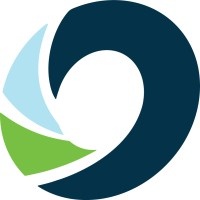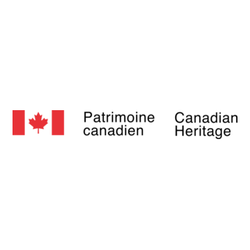
Opening Soon
Flood Resilience and Adaptation Program (PRAFI) - Resilient Development Component
Last Update: October 27, 2025
QC, Canada
Supports municipal flood resilience and adaptation infrastructure projects
Grant and Funding
At a glance
Funding available
Financing goals
Conduct research
Raise awareness and mobilize the public
Reduce the ecological footprint
See more
Eligible Funding
- Up to 75% of project cost
Timeline
- Unspecified
Eligible candidates
Eligible Industries
- Public administration
Location
- Quebec
Legal structures
- All legal structures
Annual revenue
- All revenue ranges
Organisation size
- All organization sizes
Audience
- Canadians
Overview
The Flood Resilience and Adaptation Program (PRAFI) – Resilient Development Component offers up to 75% coverage of eligible expenses as part of a $270 million investment to help municipalities implement resilient land development measures against flood risks. The program funds activities such as sustainable stormwater management, wetland restoration, ice jam risk reduction, bank stabilization, studies, and flood protection infrastructure.
Activities funded
- Implementation of resilient infrastructure and land developments to enhance safety and property protection against flood risks.
- Restoration or creation of wetlands and aquatic environments to support natural flood regulation and ecosystem functions.
- Development of sustainable stormwater management systems to reduce runoff and peak water flows.
- Installation of structures and measures that reduce risks related to ice jams in rivers.
- Studies and planning to identify, design, or analyze solutions to flooding or river mobility issues.
Examples of admissible projects:
$ 277,000
Installation of ice control structures to reduce spring ice jams
$ 600,000
Installation of green infrastructure for stormwater management in park
$ 465,000
Restoration of former agricultural land into natural floodplain wetland
$ 335,000
Acquisition of land easements for future wetland flood buffer zone
$ 210,000
Comprehensive hydrological studies and flood mitigation planning project
$ 400,000
Bank stabilization along river using native vegetation techniques
Eligibility
- The applicant must be a Quebec-based local municipality, central agglomeration municipality, regional county municipality (MRC), metropolitan community, intermunicipal board, or a grouping of such organizations.
- The project must primarily aim to protect people and property from flood risks or watercourse mobility.
- The applicant must have the financial capacity to carry out the project.
- The project must align with the current intervention plan on the territory, if applicable, and be accompanied by all information required by the program, including a council resolution (when relevant).
- The applicant must attest to ensuring the sustainability of the resilient measures realized through the project.
Who is eligible?
- Local municipalities
- Central municipalities of agglomerations
- Regional county municipalities (MRC)
- Metropolitan communities
- Intermunicipal boards
- Groups of the above-mentioned organizations
Who is not eligible
- Companies whose projects are funded or under evaluation by other similar government programs (e.g., Wetland and Water Habitat Restoration and Creation Program, OASIS program, Disaster Prevention Framework of the Ministry of Public Safety).
- Organizations whose primary goal is not to reduce flood risk or vulnerability related to the movement of waterways.
- Organizations presenting projects related to coastal submersion or erosion caused by coastal submersion.
- Companies listed in the Registry of Enterprises Ineligible for Public Contracts or on the List of Companies Non-Compliant with the Francization Process of the OQLF.
- Projects having a significant negative impact on threatened or vulnerable wildlife species.
Eligible expenses
- Costs of awarded contracts for preparation (plans, specifications, cost estimates), execution and control of the work, as well as for conducting preliminary studies or solution analysis.
- Laboratory fees, site surveying, and quality control of materials on the job site.
- Purchase of materials, rental fees for tools, equipment, and machinery necessary and directly related to the project.
- Work performed in-house: salaries of municipal employees assigned to the project, purchase of materials and supplies, and rental of tools and machinery according to current rates.
- Costs related to the purchase of infrastructure, real estate transfer taxes, and costs of acquiring land or easements essential to the project (subject to conditions). The cost of demolishing buildings on the acquired land is covered, but not the cost of acquiring the buildings themselves.
- Costs of mandatory public communications, permanent plaques, and actions required by authorities (such as construction site signage).
- Fees related to obtaining government permits, impact studies, archaeological studies, and excavations, where applicable.
- Lump-sum professional fees (engineers, planners, technicians, project managers, biologists, etc.) directly related to the project.
- Costs associated with an independent auditor required by the Ministry.
- Costs related to the installation of flood markers and the process of obtaining a protection or conservation status for a created or restored wetland.
- Net taxes applicable on eligible expenses.
Eligible geographic areas
- Quebec
Selection criteria
- Safety of individuals.
- Protection of property.
- Scope of the project at the watershed level.
- Coexistence with water.
- Demonstration of the relevance of the solution, impact on the environment, and the applicant's ability to carry out the project.
How to apply
1
Review program and eligibility
- Consult the Resilient Development Component program guide and applicant guide
- Review the additional documentation and FAQs provided
- Identify eligible project categories based on the program criteria
2
Confirm applicant and project eligibility
- Verify organizational eligibility (local municipalities, central agglomeration municipalities, county regional municipalities, metropolitan communities, intermunicipal boards, or groupings of such entities)
- Ensure the project meets specific eligibility criteria outlined in the guides
3
Prepare documentation
- Gather all required documents (completed PRAFI Resilient Development Component information form, council resolution template, building list, and any supporting materials)
- Contact the relevant project office if needed for support (bureaux.projets@mamh.gouv.qc.ca)
4
Assemble and finalize application
- Access the Governmental Portal for municipal and regional affairs (PGAMR)
- Ensure employees/advisors are registered and mandated as required
- Complete the PRAFI information form and assemble the full application package
5
Submit application
- Submit the completed application and all required documents via the PGAMR portal to the Ministry
- For urgent projects, submit at any time; otherwise, submit during the designated call for projects period
6
Await results
- Wait for Ministry review and evaluation based on admissibility and selection criteria
- Respond to any requests for additional information, if applicable
Additional information
- The program rules and standards came into effect on June 15, 2021, and will end on March 31, 2026.
- The Ministry reserves the right to withhold or refuse financial aid if project requirements or reporting standards are not met.
- All original supporting documents for expenditures must be kept for at least three years after the final expense claim is submitted.
- A conflict of interest must be reported immediately to the Ministry, and appropriate measures must be taken to address it.
Contacts
changements.climatiques@mamh.gouv.qc.ca
4186912010
QC, Canada
Apply to this program
Frequently Asked Questions about the Flood Resilience and Adaptation Program (PRAFI) - Resilient Development Component Program
Here are answers to the most common questions about the Flood Resilience and Adaptation Program (PRAFI) - Resilient Development Component. This section explains what the program is, how much funding is available, eligibility requirements, application deadlines, and other important details to help you determine if this grant is right for your business.
What is the Flood Resilience and Adaptation Program (PRAFI) - Resilient Development Component?
How much funding can be received?
What expenses are eligible under Flood Resilience and Adaptation Program (PRAFI) - Resilient Development Component?
What is the deadline to apply?
Is the Flood Resilience and Adaptation Program (PRAFI) - Resilient Development Component a grant, loan, or tax credit?
Who are the financial supporters of the Flood Resilience and Adaptation Program (PRAFI) - Resilient Development Component?
Who is eligible for the Flood Resilience and Adaptation Program (PRAFI) - Resilient Development Component program?
Who can I contact for more information about the Flood Resilience and Adaptation Program (PRAFI) - Resilient Development Component?
Where is the Flood Resilience and Adaptation Program (PRAFI) - Resilient Development Component available?
Apply to this program
More programs like this

Grant and FundingOpen
ÉcoPerformance — Recommissioning of building mechanical systems
Gouvernement du QuébecFunding to optimize the operation of building mechanical systems

Grant and FundingOpening Soon
Flood Resilience and Adaptation Program - Community Resilience and Relocation Component
Ministry of Municipal Affairs and HousingSupports municipal relocation and resilience projects in flood-risk areas

Grant and FundingClosed
Accelerating the local climate transition - Component 1
Environnement Québec (MELCC)Supports municipal climate action planning and implementation in Quebec

Tax CreditsWage Subsidies And InternsOpen
Financial assistance for the hiring of a person to integrate a job on a long-term basis
Gouvernement du QuébecSupports employers hiring candidates facing employment barriers

Grant and FundingOpen
Charge+
Propulsion QuebecSupports installation of electric vehicle charging infrastructure in Quebec

Partnering and CollaborationGrant and FundingExpert AdviceSuspended
Financial support to assess your energy use Hydro Quebec
Hydro-QuébecUp to $50,000 for energy performance analysis and optimization

Grant and FundingClosed
Greater Montreal Climate Fund — 2025-2026 Call for projects
Greater Montreal Climate FundSupports innovative projects reducing greenhouse gas emissions in Montreal

Grant and FundingOpen
Support program for economic development projects (PAPDE) — Component 2 : Support for the development of strategic sectors and regions
Gouvernement du QuébecSupport the economic development of strategic sectors and regions

Grant and FundingClosed
Anti-Racism Action Program
Canadian HeritageSupports initiatives addressing racism, discrimination, and social barriers

Grant and FundingOpen
Roulez Vert — Rebate for charging station at work
Gouvernement du QuébecGet financial aid to install electric charging stations at your Quebec business
Sign up to our platform to access the Flood Resilience and Adaptation Program (PRAFI) - Resilient Development Component information sheet for free
Get access to 4,000+ programs, practical guides, personalized alerts, and an AI assistant to support your grant applications.